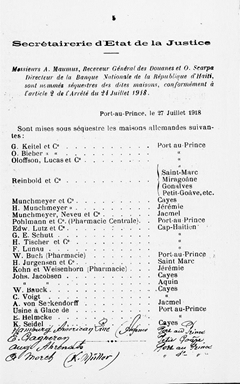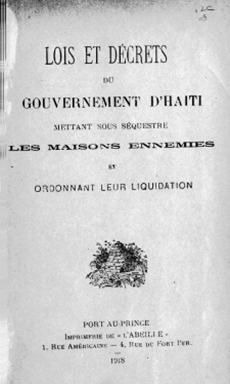"The Persecution of the Germans" by the Island Luminous Editorial Board
The Marine occupation did not relax American anxieties over the German presence in Haiti. The United States envied the Reinbolds and other prosperous German merchant families. It was suspicious of their intentions toward the Monroe Doctrine. And it was upset that Germans had lent money to support earlier revolutions on the island.
When the United States joined World War I on the side of the French and the British, it declared war on Germany and demanded that Haiti do the same. The Haitian declaration was a pretext to strip the Germans of their property and power in Haiti. The gendarmerie seized German businesses and locked over 20 Germans in an internment camp.


When the war ended in 1919, the Germans were released. But as historian Hans Schmidt has observed, the gendarmerie continued to keep them under surveillance. The United States would not allow the Germans to regain what they had lost in Haiti. In 1920 it pressured President Dartiguenave to deport nearly one-forth of the German population. These deportations increased the influence of rival merchant houses like the Brandts. Despite persecution, however, the Reinbolds and other Germans still retained considerable wealth in Haiti.